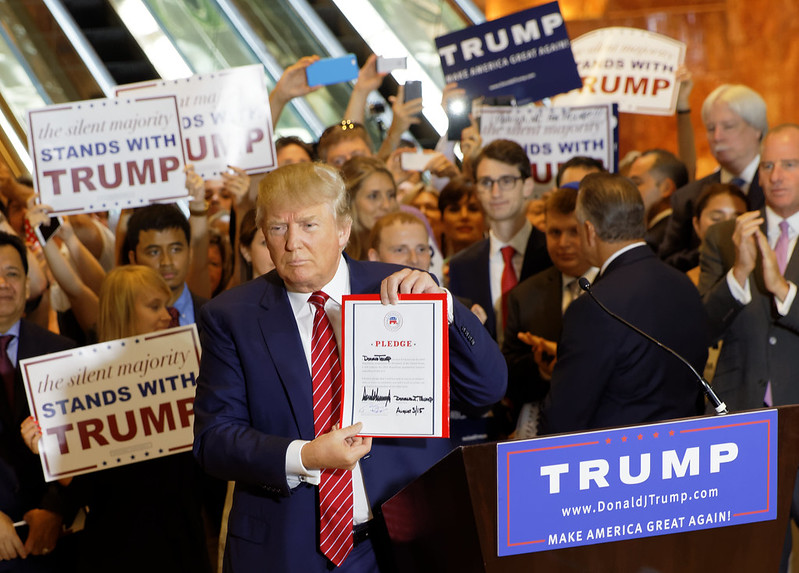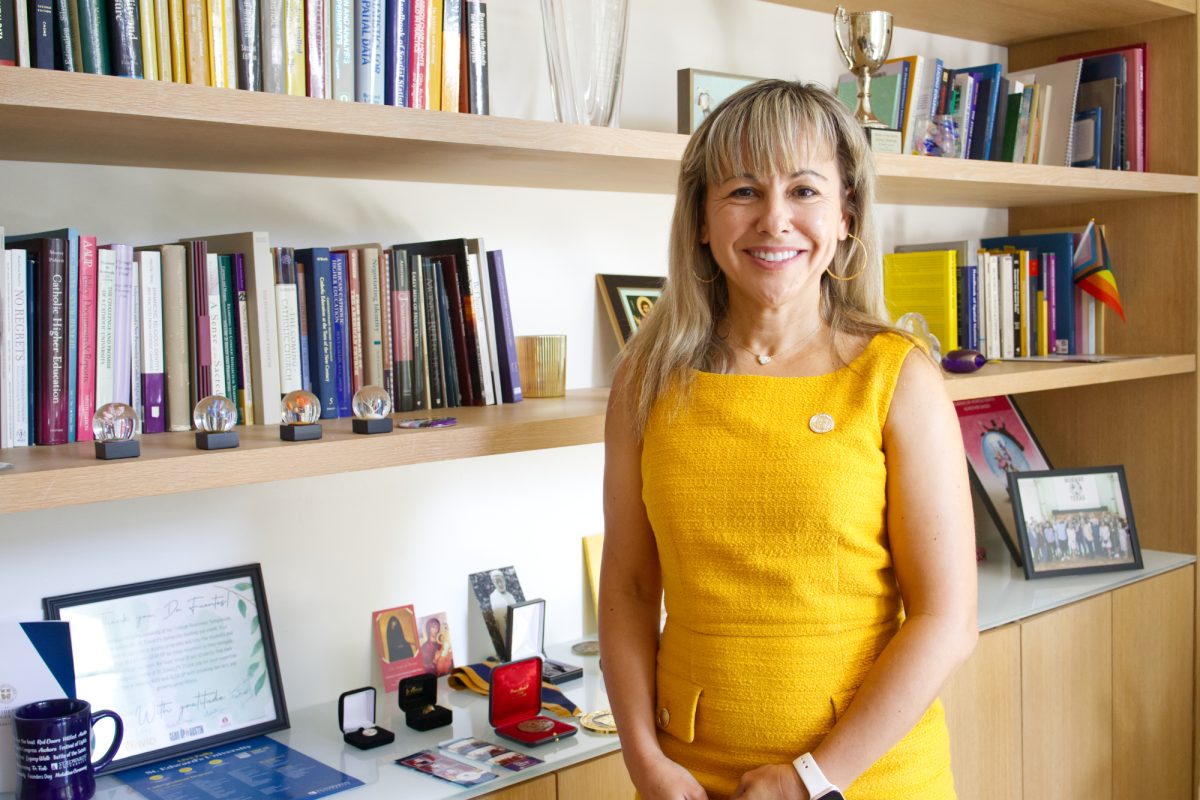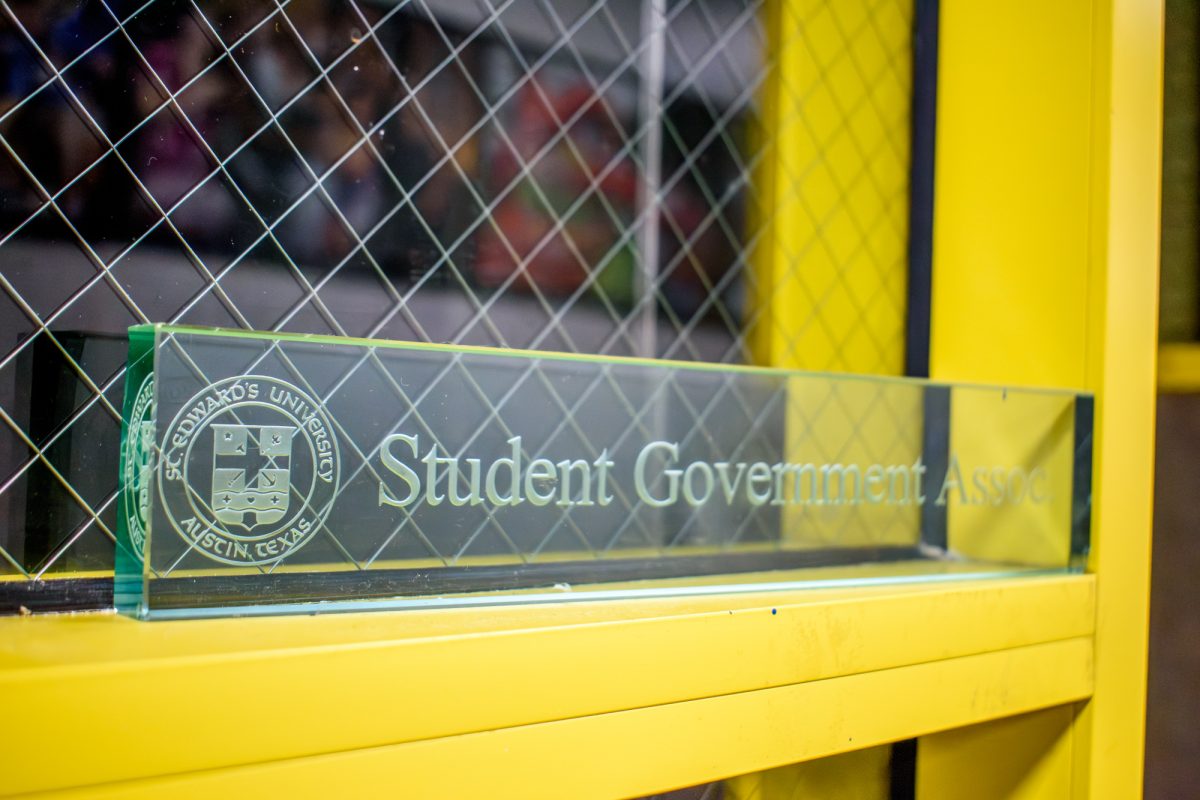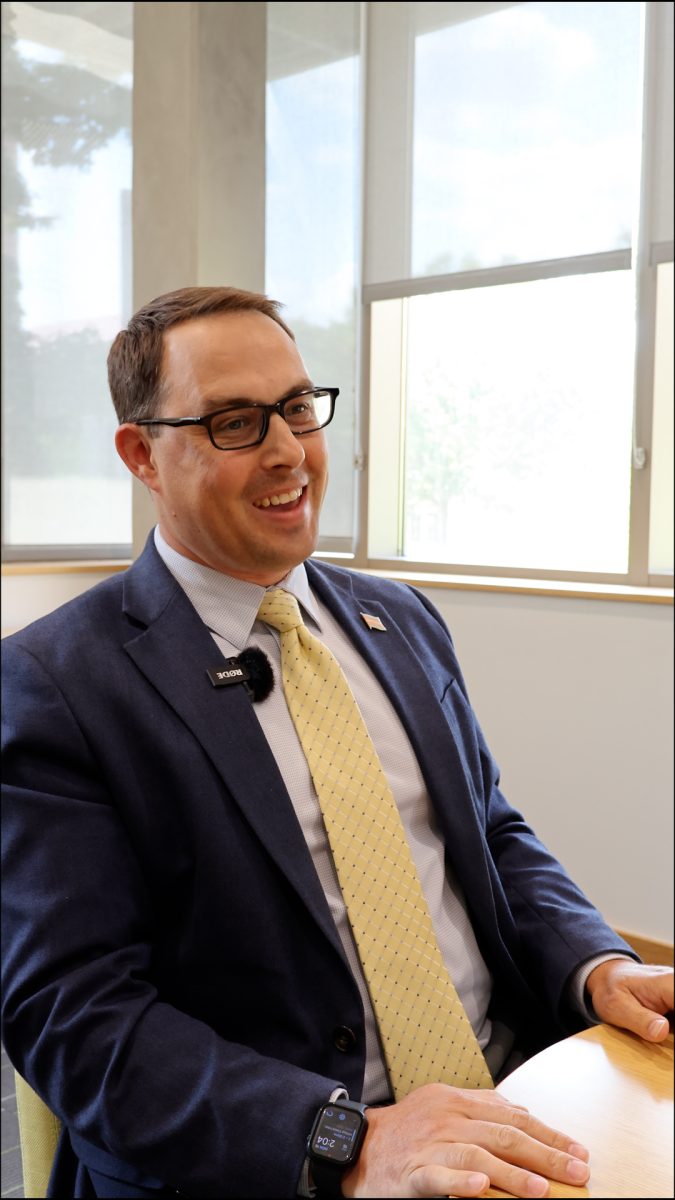St. Edward’s University students are divided in their reactions to the flurry of executive orders issued by President Donald Trump in the opening days of his second term.
Trump signed sweeping orders designed to concentrate more power in the presidency and aimed at wide-ranging areas, from immigration, to gender, to the withdrawal of the United States from the Paris Agreement – an international treaty aimed at combating climate change.
Born in Mexico City, a St. Edward’s student who Hilltop Views is not naming because he fears for undocumented family members, mentioned his concern as a resident under a Deferred Action for Childhood Arrivals (DACA) visa.
“I joke around that I have a two-year subscription to the U.S. for $500 every two years,” he said. “I have to be the perfect immigrant: work, go to school and not get in trouble. One speeding ticket can completely get rid of my work permit, my driver’s license and everything that my parents have worked for. It is really scary. My DACA renewal expires in June of this year, but I have already applied, and I got approved for another two years. But that doesn’t really mean much because Trump can just completely get rid of it.”
His grandmother had a friend who brought people across the border. He and his sister, at the time aged four and two respectively, were separated from their parents and carried across the border by this stranger. They were sedated with sleeping pills – as it was illegal back then for the police to wake up a child – and used someone else’s birth certificates to arrive in Austin.
“My parents had to walk through the entire desert and cross/swim the Rio Grande,” he said. “So my sister and I were with my grandmother and my aunt for about a month or so, waiting for my parents to arrive from Mexico to the U.S.”
Immigration was a significant topic in Trump’s decisions, with several executive orders, including the reinforcement of the Mexican border, calling for a “National Emergency” at the southern border of the U.S., as well as the direction “to take all necessary action to immediately repel, repatriate and remove illegal aliens across the southern border of the United States.”
In addition to the immigration executive actions, Trump’s statement on the U.S. policy to recognize only two genders also raised concerns among students.
Some Hilltoppers, such as biochemistry sophomore Andrea Joglar, opposed the move.
“It’s taking steps back when we should be taking steps forward,” Joglar said.
Theatre senior Indigo Lane worked hard to discover who they are and explained their concerns about how quickly it all came together.
“Everything that every minority has ever feared is coming to light so fast,” Lane said. “I’m pretty terrified, and I don’t really know what’s going to happen. I mean, I’m terrified for all of us, but I’m terrified for me as well. I am a lesbian and I am non-binary. A lot of the things that Trump is trying to attack are who I am.”
Marketing junior Andres Ortega supported Trump’s decision.
“I believe that’s great – having two sexes and that’s it,” Ortega said. “That’s what it says in the Bible. And I believe that’s right and that’s how it should be. I mean, no offense to anyone, but that’s just how I was raised.”
Beyond immigration and gender policies, Trump’s agenda also includes a lot of executive orders aimed at the environment and energy. The withdrawal of the U.S. from the Paris Agreement for the second time, both under Trump, particularly caught theater senior Theodore Jones’ attention. He emphasized the role of this treaty in limiting the rise in global temperatures.
“America is one of the leading producers of carbon emissions,” Jones said. “We use a lot of natural fossil fuels, and I am scared of what is going to be without a global unity keeping us in check – if it is going to become where the corporations themselves get to make their choices of what the regulations are. Because I am afraid of a lot of the greed that comes with organizations in America.”
While many students described this period as an uncertain time, digital storytelling and content creation senior Sam McFarland explains that the ideas behind Trump’s policies have existed in America for longer than he’s been in power.
“I feel negative, but I think it’s going to still work out,” McFarland said. “It’s going to get worse before it gets better, but it’s definitely going to get better. I mean, one way or another people are going to resist. Once people realize that these policies are mostly driven by hatred, fear and greed, a common decent person who may have supported Trump in the past is not going to keep supporting that type of administration. When fascism reveals itself, most people will not accept it.”









Fran • Feb 11, 2025 at 9:08 pm
OMG Best article ever!!!
Fran • Feb 11, 2025 at 6:55 pm
DACA recipients are not “residents” in the legal sense; they are undocumented individuals who have been granted temporary relief from deportation and work authorization.
Sean • Feb 5, 2025 at 8:57 pm
Amazing article! I totally agree with Andreas, I think there should only be two genders especially at a catholic institution. That’s just how I grew up. I also think that immigrants shouldn’t come in illegally and should go through the legal way especially students.
Jena Heath • Feb 5, 2025 at 1:42 pm
Great story, Gaby.
Castex Denise • Feb 5, 2025 at 8:53 am
How in the 21st century can we see in the United States as elsewhere in the world, such a retreat, such intolerance, such a denial of civilization on the climate impact. Trump shows the face of a totally uninhibited US right. Will we have a leap of common sense around the world to reverse this escalation of violence and intolerance. I hope so.
Fran • Feb 11, 2025 at 7:22 pm
Your claim implies that the US is the only nation that has backtracked on a global scale. To such an extent that they are uninhibited. “Oh the savagery.” Let us not forget that the US dared to leave the Paris Climate Accords. Oh no! Well I think we should look at two active members of the Paris Climate Accords. China and India. China is the world’s largest emitter of carbon dioxide , responsible for over 30% of global CO2 emissions. And over 55% of China’s energy still comes from coal-fired power plants, which release massive amounts of CO2 and methane. Like China, India relies heavily on coal (nearly 70% of electricity generation) despite commitments to transition to renewables. And because they have a rapid urbanization and industrial expansion have led to growing energy demands. It is acceptable that they continue on this path. So cry me a river.